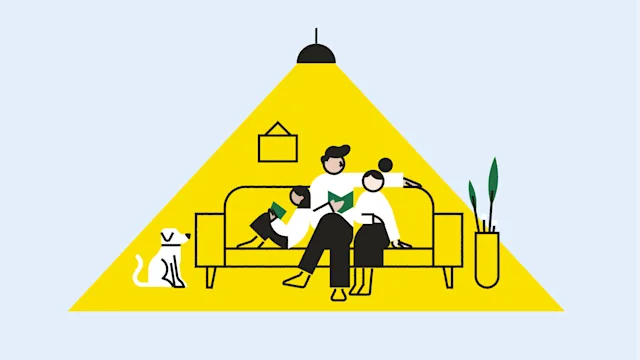Key takeaways:
Interpersonal therapy (IPT) is a type of mental health therapy that focuses on building social skills and supports.
IPT is used most often to treat depression associated with life changes, grief, social isolation, or social-relationship issues.
IPT will help you identify one problem area to focus on in treatment and give you interventions to make changes.
It is often said that the only constant in life is change. And there is truth in that, because life is always changing. But knowing that doesn’t always make it easy to accept change. Sometimes, life changes can lead to feeling lost, sad, irritable, or depressed.
If you are struggling with change, grieving a loved one, or dealing with difficulties in your relationships with others, continue reading to see if interpersonal therapy (IPT) could be helpful to you.
What type of therapy is interpersonal therapy?
Interpersonal therapy is a type of psychotherapy that mainly focuses on improving social relationships. IPT looks at how your current relationships and social environments shape your thinking and behaviors.
Search and compare options
Using this information, IPT can help you improve your:
Social functioning
Communication skills
Social support
What can interpersonal therapy treat?
Interpersonal therapy is well-supported by research as a treatment for major depression. IPT can be especially helpful for depression that started after certain life changes, such as:
Moving
Getting divorced
Experiencing the death of a loved one
Ending a relationship
Being physically ill
IPT is also sometimes used to treat other mental health conditions, including:
Bipolar disorder
How does interpersonal therapy work?
Interpersonal therapy involves a highly structured course of treatment that lasts 12 to 16 weeks, during which you attend one session per week. There are three phases of IPT: beginning, middle, and end.
Read more like this
Explore these related articles, suggested for readers like you.
Phase 1: Beginning
The first phase of IPT focuses on assessing your mental health symptoms to figure out the areas of your life that have been most impacted.
In IPT, your therapist will help you identify 1 of 4 core issues to address during therapy:
Grief: loss of a loved one or someone close to you
Role dispute: having conflict in one or more of your social relationships
Role transition: struggling to adjust to transitions like taking a new job, moving, having relationship status changes, or moving from one role to another (for example, military member to civilian)
Interpersonal deficits: struggling to make social attachments, isolating, or having very few relationships
The beginning phase of IPT may last for up to three sessions.
Phase 2: Middle
The second stage of IPT concentrates on working with your IPT therapist to address the issues that brought you into therapy. Your therapist will use specific strategies to help you do this.
This may look like:
Addressing interpersonal deficits by improving social skills
Processing role transitions, emotions, or grief
Doing a communication analysis, during which you and your therapist examine a conversation between you and another person to strengthen your communication skills
Exploring options and doing a decision analysis, which helps you reflect on your needs and wants and set realistic expectations
Phase 3: End
In the last stage of IPT, the therapist will help you prepare for the end of therapy. They will also work with you on a plan to continue using tools you learned in IPT.
IPT treats the end of therapy like a graduation. Most people spend two or three sessions on the end phase of IPT treatment.
How effective is interpersonal therapy? And how long does it take to work?
Overall, interpersonal therapy has been shown to be effective mainly at treating depression. In a review of multiple studies, IPT was shown to help improve depression symptoms. And, according to this review, IPT may be more effective than cognitive behavioral therapy (CBT) at treating depression.
While there are some studies to support IPT as a treatment for other conditions, it’s generally considered an add-on therapy in these cases. Depending on your specific situation, your therapist may use IPT alongside other therapies or medication for the best outcome.
How do you find an IPT therapist?
If you are interested in finding an interpersonal therapy provider, there are a few options you can try:
Go to the IPT Institute’s website directory to search for a therapist.
Search Psychology Today for IPT providers who are in your area or use telehealth.
For a more affordable option, try searching Open Path for IPT providers who accept discounted therapy fees.
The bottom line
Interpersonal therapy (IPT) is a short-term treatment that can address multiple mental health concerns. But, based on research, IPT is most effective at treating depression.
IPT can help you identify areas in your life that may be causing difficult mental health symptoms. An IPT provider will work with you to help you manage or change your social environment, improve social skills, or build social supports to improve your well-being. If you are struggling with depression, a life transition, the loss of a loved one, or difficulties in your social life, IPT may be a type of therapy worth looking into.

Why trust our experts?



References
De Mello, M. F., et al. (2005). A systematic review of research findings on the efficacy of interpersonal therapy for depressive disorders. European Archives of Psychiatry and Clinical Neuroscience.
International Society of Interpersonal Psychotherapy. (n.d.). Adaptations of IPT: What works for whom?
International Society of Interpersonal Psychotherapy. (n.d.). Key IPT strategies.
International Society of Interpersonal Psychotherapy. (n.d.). Overview of IPT.
Lipsitz, J. D., et al. (2013). Mechanisms of change in interpersonal therapy (IPT). Clinical Psychology Review.
Markowitz, J. C., et al. (2004). Interpersonal psychotherapy: Principles and applications. World Psychiatry.
Society of Clinical Psychology. (n.d.). Interpersonal psychotherapy for binge eating disorder.
Society of Clinical Psychology. (n.d.). Interpersonal psychotherapy for bulimia nervosa.
















